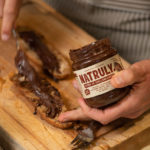Estimated reading time: 3 minute(s)
“Bring me a Coca-Cola Zero please, I’m on a diet”. This is the best way to trick yourself into thinking that this will balance out that double cheeseburger with bacon and fries that you’re eating. Sugar is bad, but artificial sweeteners are NOT the solution. Contrary to what we have been led to believe, artificial sweeteners do not slow down weight gain and don’t always contain fewer calories, and they definitely aren’t a healthy substitute for sugar.
INorganic is ANTInatural
Let’s start with the basics, nothing artificial or over-processed is good for our body, and artificial sweeteners are NO exception. The “tendency” to go back to nature is more than a simple trend, rather, it’s a response to studies that have shown the link between over-processed (full of additives which go through lengthy processes in order to incorporate those ingredients into our food) to chronic noncommunicable diseases like Cardiovascular Disease, Diabetes and Cancer.
In fact, many nutritionists prefer the use of natural sweeteners like raw honey over many of the industrial/comercial artificial sweeteners like Nutrasweet, Sweet ‘N Low and Splenda. And, this is not about eating or not eating calories, this is about taking care of our health. Although some studies are not 100% conclusive, they all do associate the consumption of artificial sweeteners with negative health effects that were not known about years ago.

Increased Appetite
By providing a sweet flavor without providing any energetic value, this could interfere with the bodies natural mechanisms that regulate appetite and the feeling of being full. This often occurs due to a conditioned reflex that develops when we eat “sweet” food that have empty calories and that stimulate our taste buds, activating hormones increasing our appetites, thus the urge to overeat.
Classic Conditioning
Let’s go back to school, do you remember a guy named Pavlov and the experiment he did with a dog? Well, in case you don’t remember, what he did was to ring a bell each time before the dog was fed; that way the dog would associate the sound of the bell with feeding time. This experiment showed that later the mere fact of ringing the bell made the dog salivate. The same exact thing happens with artificial sweeteners! It’s been suggested that a sweet flavor conditions our bodies to respond similar to that of the dog in Pavlov’s experiment. Eating sugar makes us feel hungrier!
Several studies link the consumption of artificial sweeteners to a greater resistance to insulin and the subsequent development of Type 2 Diabetes (DM2) which can be explained in several ways:
- By activating the conditioned reflex that we mentioned above, where the “trick” on our brain from eating artificial sweeteners triggers an overproduction of insulin (similar to the reaction produced by refined sugars), can overwork the pancreas.
- This happens through the change in the gut flora, or second brain, due to the negative influence of artificial sweeteners, according to various studies (3). This effect is one of the most delicate ones since the gut flora is involved in metabolic and immunological functions as well as, growth and development among others; and its composition and functionality can be altered through what you eat (2). Sugar, for it’s part doesn’t cause this effect, this is what has led us to believe that sweeteners are worse than sugar.
It can increase the risk of Cardiovascular Disease
There are several studies that link the development of cardiovascular disease to artificial sweeteners. One of the most recent was a longitudinal study that was published, in February 2019, in the medical journal for Strokes (4) the study covered a population of almost 82 thousand women, where a higher consumption of artificially sweetened beverages was associated with an increased risk of cerebrovascular accidents (CVA), coronary heart disease, and all-cause mortality.
I’m a staunch enemy of sugar, however just demonizing them while artificial sweeteners cause so much havoc, is NOT the solution, we must go further. It doesn’t matter if a product is marked “Sugar-Free” if instead, it’s full of harmful chemicals that damage our health. Don’t be fooled by the marketing of “Zero Calories”.
There are no magic solutions, but there are solutions at our fingertips. While cutting out sugar from your diet is essential, stop trying to trick it by using artificial sweeteners; instead teach your body well by adapting new and healthy habits. To do this, base your diet on fresh foods and start to cut back on eating sweets, only then will your palate begin to regain it’s natural sensitivity. If you need to sweeten something, try looking for REAL healthier alternatives like coconut sugar or raw honey.
If this article about Artificial Sweeteners spiked your interest, don’t miss out on:
Artificial Sweeteners: Are you still eating them?!
How to substitute refined sugars with natural ones!
Are Sweeteners Healthy?

#BeMoreNatural#SoloTieneCosasBuenas











